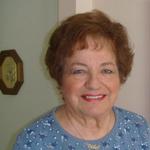It's been about 6 1/2 months since my diagnostic sleep study, almost 5 months since I first started xPAP therapy, and almost 7 weeks since I started to do intensive CBT work to get my insomnia monster under control.
So four sleep tests, two xPAP machines, four different prescribed pressure settings, seven face-to-face appointments with the PA (with another scheduled for Friday), and numerous phone calls between those visits later, how am I doing?
My body finally seems to be more-or-less adjusted to sleeping with the BiPAP; masking up no longer causes me to become WIDE AWAKE. I never had issues with pulling the mask off my face. And now I've learned not to dread bedtime as much as I did back in the fall. And I've got working strategies to deal with the exhaust jet from the Swift FX that chapped my lips so severely back in January. I've even noticed a few subtle changes in how my body feels when I wake up now:
- I no longer wake up with minor joint pain in multiple joints every morning. Most of my joints remain pain free throughout the day.
I often wake up without a headache now. But I still have morning headaches on a significant fraction of mornings---probably as many as 30--50% of the mornings I still have a headache. The character of the headaches has not changed very much. And they are not a huge problem (never were really) since on most mornings, the headache is mild. When I do have a headache, it sometimes disappears faster than they used to pre-CPAP.
I seem to much less restless in my sleep---provided the insomnia monster doesn't show up. Pre-CPAP I rarely woke up in the same position that I went to sleep. This is pretty common now. And I've learned how to get comfortable before falling asleep so that I don't wake up with a stiff neck.
Switching the the BiPAP helped address the aerophagia and other pressure-related issues. But notably the theme of aerophagia kept running through my first insomnia log like a broken record; hence the four sleep study---which was a second bi-level titration study. I've only been using the new, lower pressure settings for less than a week. But the resulting drop in pressure has helped helped my stomach and the number of awakenings due to stomach discomfort has decreased.
The long term AHI numbers for both my former Resmed S9 AutoSet and my current PR System One BiPAP Auto look remarkably similar: The vast majority of nights the AHI is below 1.5, with most of them clustering between 0.5 and 1.0. The occasional odd bad night has an AHI more in the 2.5 to 4.5. But there's only been one night (Halloween) that had an AHI higher than 5.0. The long term "average AHI" for the two machines is also pretty close: In the roughly 90 days I used the S9, the overall average AHI was 0.9, with AI = 0.6 and HI = 0.3. In the roughly 50 days I've used the System One, the average AHI is 1.1, with AI = 0.7 and HI = 0.4. So with there's plenty of evidence that xPAP does an excellent job in controlling my apnea episodes.
I seem to be slowly recovering from the severe crash and burn that I suffered through from shortly after I started CPAP on September 23 through late December. Throughout the fall I was a dysfunctional walking zombie by day. In spite of "sleeping" 6, 7, or 8 hours or more with the mask on every night, the daytime exhaustion and the daytime sleepiness were beyond anything I'd ever felt in my life. I looked horrible and colleagues kept asking me what was wrong and how my health was. I had to resign from committees at work, beg off additional assignments from my chair, and did a pretty miserable job of teaching my college level mathematics classes in the Fall 2010 semester. Not only did I not manage to learn any of my students' names, but grading was a constant challenge for the whole semester. I missed turning in grades for one class---had to fill out a change of grade form for each and every student---because I simply could not find the strength, energy, and mental capacity to get the final exams graded in time to figure out the semester grades. Fortunately there were less than 20 students in the class. So the paperwork for the department secretary was not too great. I spent a significant chunk of my winter break working extremely hard on starting the battle with the insomnia and making significant mental steps towards genuinely accepting the BiPAP machine as a positive force in my life rather than "a positive force that has also invited an insomnia monster into my bedroom with its own invasion of my personal space." By the time my classes started in late January, I no longer was consistently feeling like a hairball upchucked by a cat every single day.
Micronaps (which were never a problem pre-CPAP) continue to plague me. On most days I now have some semblance of real functioning and alertness for 3 to 5 hours. Some days I even have a bit more. Teaching has returned to being fun instead of the horrid chore it had become last fall, but grading remains problematic. And along with the micronaps I still have real problems with functioning in the late afternoon and through the evening. But then I "wake up" and become more alert sometime between 10:30 and 11:30 usually. By my PA-dictated bedtime of 1:30AM, I am usually physically very tired, but I am not always mentally sleepy. And when I get sleepy, it happens rapidly with a tendency to trigger some rather bizzare micronapping that is much more disturbing than it is restful.
I am still very terrified of falling asleep at the wheel---a problem that first raised its ugly head by the end of September--about a week into CPAP therapy.
I still don't feel all there cognitively yet either. Pre-CPAP I had an excellent memory both for the day-to-day things and for long term memories. I had an excellent head for details and could manage even though my organizational skills leave something to be desired. I spent all of last fall in a mental fog of the sort that I'd never experienced before. Simply could not keep track of anything---even if I did write it down. While some of my memory is slowly coming back, I feel as though I've lost three months of my life since I remember almost nothing except the pain of trying to live with the CPAP/APAP/BiPAP last fall. Today I still draw blanks when I'm looking for a specific word. My none-too-great spelling has deteriorated at an alarming rate. And I don't always pick up on the things going on around me. I'm very easily distracted and have trouble concentrating.
I still have a sense of loss over numerous changes that I've either made because of xPAP or the CBT for the insomnia. Some of the things I am grieving for are pretty trivial; others much more significant. Among them in no particular order:
- Going to bed at the same time as my hubby and being able to talk to him while we're in bed. Not only is it difficult for my hubby to stay awake until my bedtime, but when he does, I still can't talk to him once we're in bed because I'm masked up. And if I open my mouth, I get a stomach full of air---even at 7/4.
Caffeine after 10AM. I mainly miss my unsweetened iced tea at lunch. But both hubby's family and mine are prone to "coffee after dinner" which is hard to turn down when we're visiting.
Going to bed when I want to go to bed. 'Nuff said.
Sleeping in late with hubby on a Saturday morning when neither of us has anything pressing to do.
Late dinners with my hubby---as in as late as 9:00 pm. And large dinners. If I eat much of anything after about 8:00, I run a much higher risk of aerophagia that night.
And it's past my bedtime, and yes, I've violated my own rule about being on the computer too close to bedtime. And since I'm finally sleepy, it's time for me to go back to the bedroom and pull on Kaa and let him try to keep the airway nice and open tonight.













